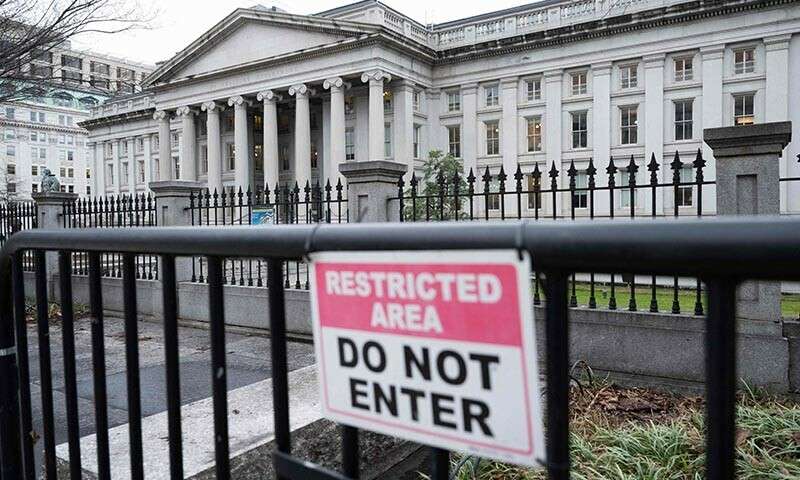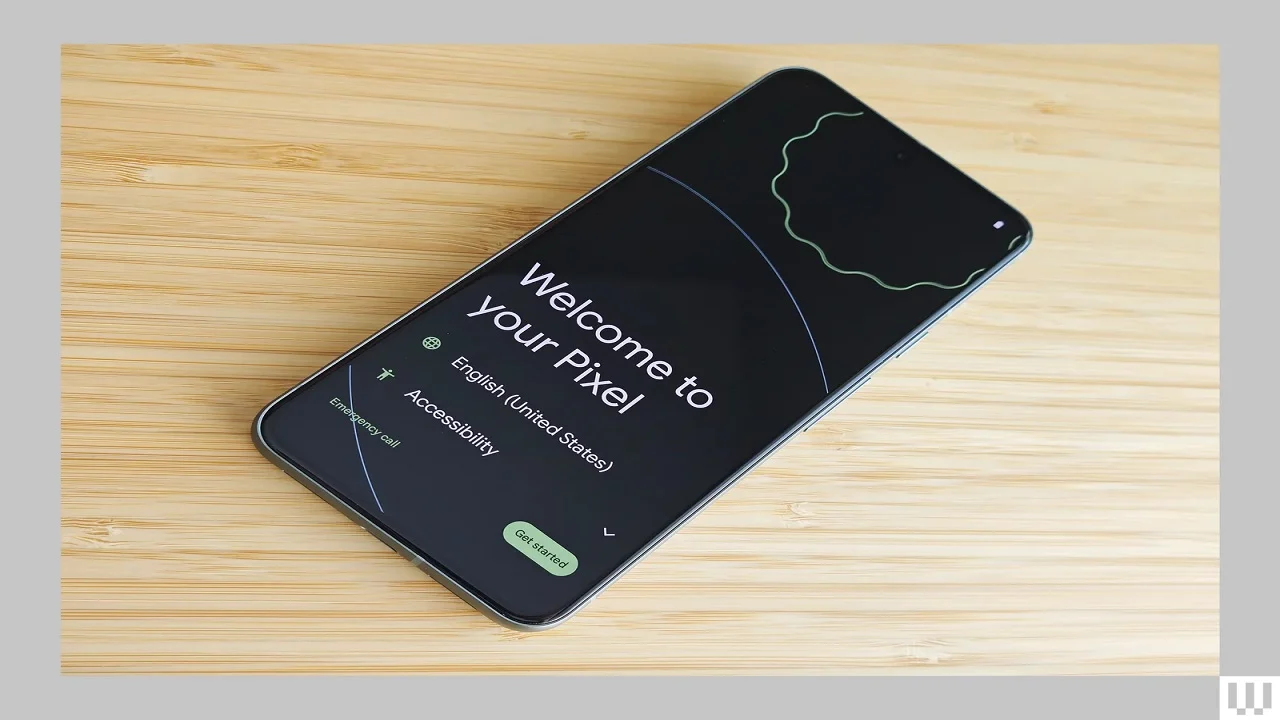China has strongly rejected allegations that it was behind a cyberattack targeting the U.S. Treasury Department, calling the accusations “groundless.” The cyber breach, which occurred earlier this month, involved unauthorized access to some of the Treasury’s workstations. The attack is believed to have been orchestrated by a China state-sponsored actor, a claim that has sparked significant diplomatic tension between the U.S. and China.
The U.S. Treasury reported that the breach occurred when a third-party cybersecurity service provider was compromised, allowing the hacker to remotely access some of its unclassified documents and workstations. While the U.S. authorities have yet to determine the full extent of the breach, the attack has raised concerns about the security of critical government systems and the growing threat of cyber warfare.
The Allegations: What Happened?
The U.S. Treasury, in its letter to the Senate Banking Committee, disclosed that it had experienced a cyberattack in which the actor was able to infiltrate its systems. According to the Treasury’s assessment, the cyberattack was attributed to a Chinese state-sponsored Advanced Persistent Threat (APT) actor. APT attacks are often long-term and highly sophisticated, with the intruder gaining unauthorized access to systems while remaining undetected for an extended period.
The cyberattack was discovered after the U.S. Treasury was alerted by its third-party provider, BeyondTrust. Upon notification, the Treasury promptly engaged with the U.S. Cybersecurity and Infrastructure Security Agency (CISA) and law enforcement agencies to investigate the incident further. The compromised service was swiftly taken offline, and the Treasury stated that there was no evidence to suggest that the attacker still had access to its systems or data.
China’s Denial: Accusations Without Evidence
In response to the allegations, China’s foreign ministry spokeswoman, Mao Ning, vehemently denied any involvement in the attack, branding the accusations as “groundless.” She reiterated that China has consistently opposed all forms of hacking and has taken steps to combat cybercrimes. The foreign ministry also criticized the spread of false information and asserted that the claims against China lacked solid evidence.
Mao further emphasized Beijing’s position against cyberattacks, stating, “We have stated our position many times regarding such groundless accusations that lack evidence.” She added that Beijing opposes the use of such claims for political purposes and criticized efforts to tarnish China’s reputation on the global stage.
U.S. Treasury’s Response: Continued Investigation
The U.S. Treasury, in its letter to lawmakers, clarified that while the attack was attributed to a Chinese state-sponsored actor, it had taken immediate steps to mitigate the potential damage. The compromised BeyondTrust service, which was central to the attack, was disconnected from the Treasury’s network. Officials from the department have assured that, after thorough investigation, no further unauthorized access has been detected.
“We take all threats to our systems and data very seriously,” said a Treasury spokesperson. “As part of our commitment to transparency, a detailed supplemental report will be issued, providing further updates on the situation.”
The Growing Cybersecurity Concerns
This breach is part of a broader pattern of cyberattacks targeting government agencies, businesses, and critical infrastructure. Over the past few years, concerns have intensified over the increasing number of cyberattacks allegedly backed by the Chinese government. Beijing has repeatedly denied these accusations and has stressed that it is committed to cracking down on cybercrime.
Previous Cyberattacks Linked to China
The U.S. has long been on alert for cyberattacks originating from Chinese state-backed hackers. In 2023, tech giant Microsoft revealed that a group of Chinese-based hackers, known as Storm-0558, had successfully infiltrated email accounts across several U.S. government agencies. The breach affected more than 25 organizations, including the U.S. State Department and the Commerce Department, with sensitive information at risk.
In addition, in February 2024, the U.S. authorities took action against a hacker group known as “Volt Typhoon.” This group was allegedly targeting critical public sector infrastructure, such as water treatment plants and transportation systems, on behalf of the Chinese government.
International Alarm: Growing Cybersecurity Threats
The U.S. is not alone in raising alarms over Chinese-backed cyberattacks. Several other countries have also reported a surge in cyberattacks linked to China. These include breaches affecting businesses, governments, and military entities. As the world becomes more reliant on digital infrastructure, the threat of cyberattacks continues to escalate, making cybersecurity a top priority for national security.
Many experts argue that these cyberattacks are part of a broader strategy by China to gather intelligence, disrupt adversaries, and exert political influence on the global stage. As a result, cybersecurity has become an essential element of international relations and national defense.
The Global Impact of Cybersecurity Breaches
Cyberattacks have far-reaching implications, not just for the targeted organizations, but for entire nations and the global economy. The ongoing breach at the U.S. Treasury exemplifies the vulnerability of critical infrastructure and the potential consequences of cybersecurity lapses.
While the breach at the U.S. Treasury was relatively contained, it serves as a stark reminder of the growing sophistication of cyberattacks. As state-sponsored actors continue to hone their cyber capabilities, the potential for large-scale disruptions and espionage only increases.
Why China Denies the Allegations
China’s repeated denials of any involvement in cyberattacks are consistent with its broader stance on cybersecurity. Beijing has consistently stated that it opposes hacking in any form and has enacted laws to combat cybercrimes. However, critics argue that China’s denials are not enough to dismiss the growing evidence of its involvement in cyber espionage.
While China maintains that it is the victim of false accusations, experts point to the rising number of incidents tied to Chinese-backed hackers. The U.S. and other nations believe that these activities are part of a wider geopolitical strategy aimed at undermining their technological and strategic interests.
What Does This Mean for U.S.-China Relations?
The latest cyberattack allegations add yet another layer of tension to the already complex relationship between the U.S. and China. Cybersecurity is increasingly becoming a key factor in diplomatic and economic relations, with both sides accusing each other of interference and cyber espionage.
As the U.S. continues to investigate the attack on its Treasury Department, it remains to be seen how China will respond. The situation underscores the importance of improving cybersecurity protocols and developing international frameworks to address the challenges posed by state-backed hacking operations.
Key Takeaways from the Cyberattack
- Advanced Persistent Threats (APT): Cyberattacks attributed to state-backed actors are often characterized by sustained, undetected access to sensitive systems.
- Rising Cybersecurity Threats: Governments and businesses worldwide are facing increasing threats from cyberattacks, particularly from state-sponsored groups.
- China’s Denial: Despite mounting evidence, China has consistently denied its involvement in cyberattacks, accusing critics of spreading false information.
- International Cooperation Needed: The need for global collaboration in combating cyber threats is more critical than ever, especially as cyberattacks become a tool of geopolitical strategy.
FAQs
1. What is an Advanced Persistent Threat (APT)?
An APT refers to a cyberattack in which the attacker gains unauthorized access to a system and maintains it over a long period, often to steal sensitive information or disrupt operations.
2. How did the U.S. Treasury respond to the cyberattack?
The U.S. Treasury took immediate action by working with the U.S. Cybersecurity and Infrastructure Security Agency (CISA) and law enforcement to investigate the breach. The compromised service was taken offline to prevent further damage.
3. Has China been involved in other cyberattacks in the past?
Yes, China has been linked to several cyberattacks over the years, targeting various sectors including government agencies, businesses, and critical infrastructure. Some of these attacks have been attributed to state-sponsored hacking groups.
4. Why does China deny involvement in these cyberattacks?
China maintains that it opposes all forms of cyberattacks and has enacted laws to prevent cybercrime. However, critics argue that these denials are part of a broader strategy to deflect attention from state-sponsored hacking activities.
5. What are the potential consequences of state-backed cyberattacks?
State-backed cyberattacks can result in the theft of sensitive information, disruption of critical infrastructure, and espionage, which can have far-reaching implications for national security and international relations.



